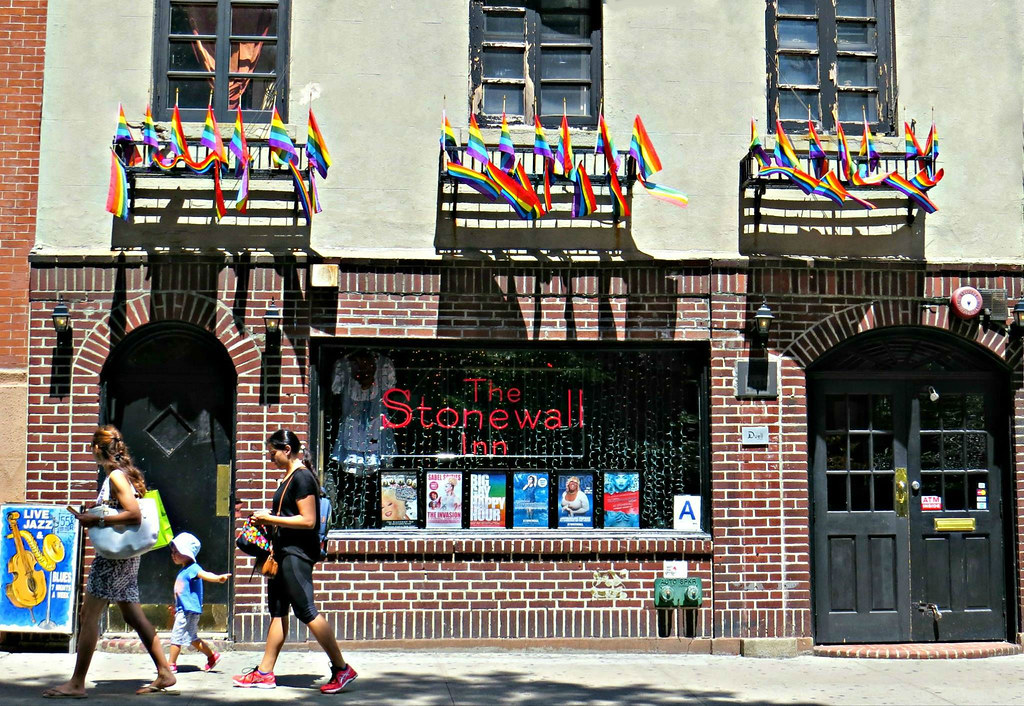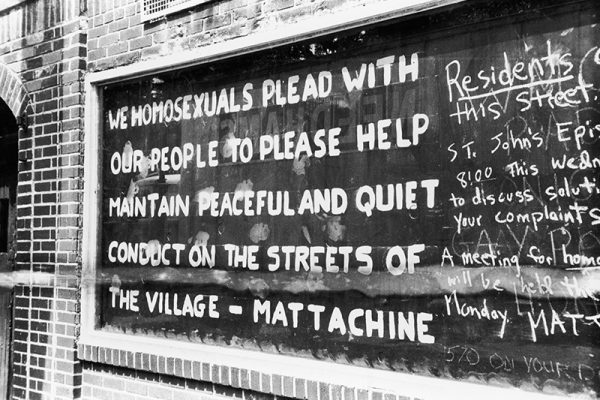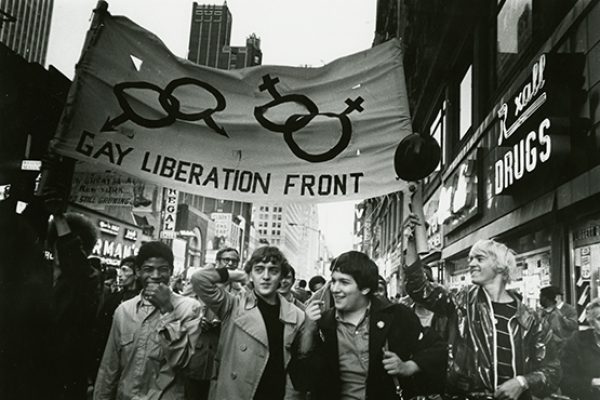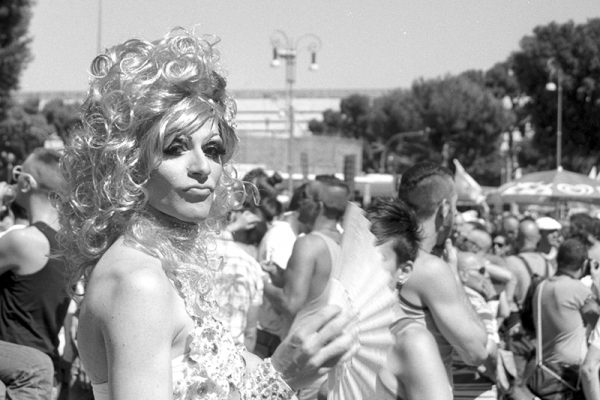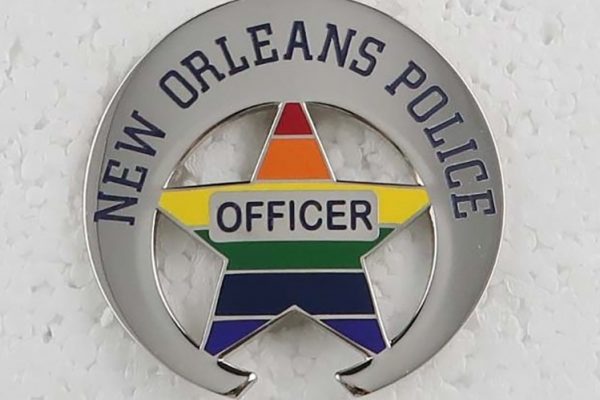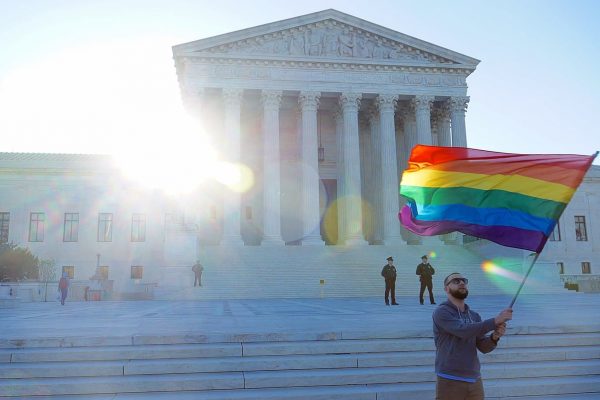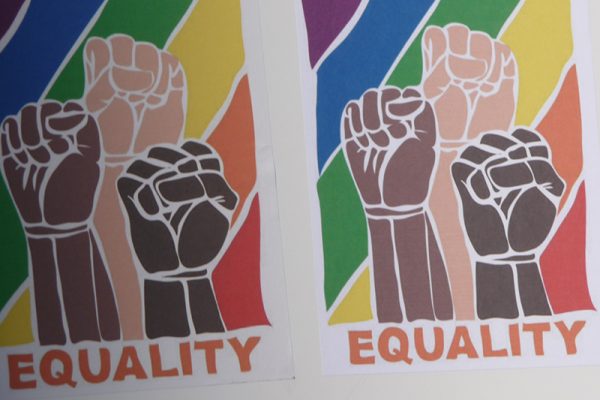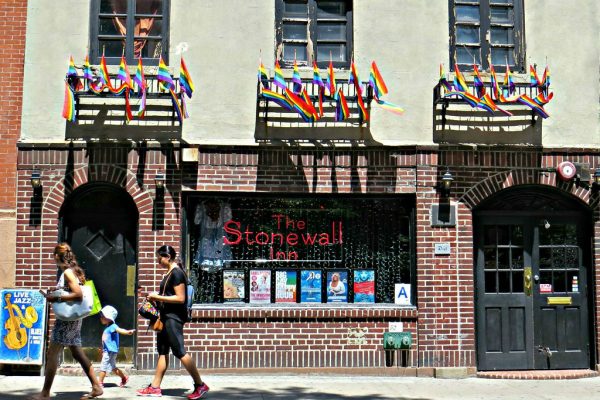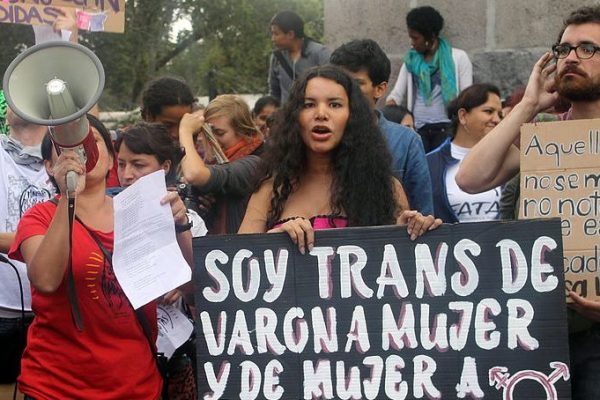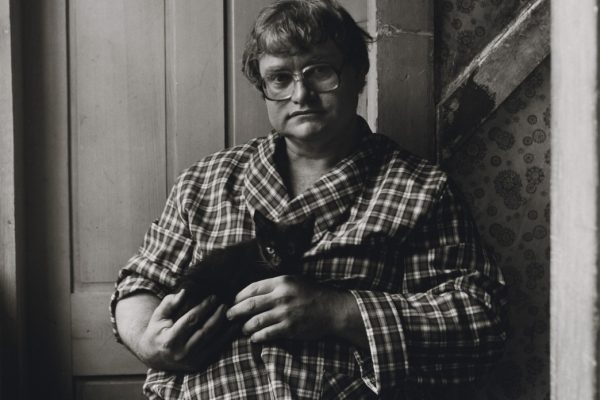The origins of Pride Month lie in rebellion. On June 28, 1969, a routine police raid on the Stonewall Inn in Greenwich Village encountered fierce resistance from the bar’s patrons. Fed up with constant police harassment, the denizens of Stonewall—a diverse group of gay, lesbian, and trans people—decided to fight back. The spontaneous uprising sparked a wave of protests that helped catalyze the movement for LGBTQ liberation.
Today, Pride Month is celebrated around the United States, but what has become of its radical legacy? According to historian Micki McElya, “the messy dynamism, diversity, and radical potential of Stonewall has been assimilated as an easy shorthand for the success of U.S. liberalism, with its inevitable (if hard-won) progress and inclusion.” Epitomized by Pete Buttigieg— a “moderate Democrat who embraces a particular species of Middle American wholesomeness”—Stonewall has been “recast” as “the origin of a centrist rights movement,” McElya contends.
Diving into the history of radical gay liberation, veteran gay liberationist Michael Bronski notes that even the comparatively moderate and respectable Mattachine Society—a gay rights organization founded in the early 1950s—had Communist Party roots. The Gay Liberation Front and allied organizations that emerged in the wake of Stonewall “drew most of their members from the New Left,” Bronski writes. “Fueled by the enormous energy of the Black Power movement, the antiwar movement, and Second Wave feminism (as well as sex, drugs, and rock-and-roll), this iteration of gay activism demanded not rights but wholesale cultural change.”
Other essays on this week’s reading list aim to revive the radical legacy of Stonewall while examining the tension between radical and reformist roads to LGBTQ rights. Drawing on the ideas of E. P. Thompson and Walter Benjamin, Samuel Clowes Huneke seeks a “usable” queer history in the everyday experiences of unsung heroes and activists; Hugh Ryan asks whether “homonormativity” has displaced gay liberation; Mary Bernstein wonders if the courts are the right arena in which to fight for queer rights; Joanna Wuest exposes the hollowness of corporate allyship; Joseph J. Fischel discusses police at Pride events; and more.
On the world gay liberationists hoped to create.
In our search for a useful past, we need to be careful whom we name as the heroes of queer history.
White gay men and trans women of color often have little in common.
In the fight for LGBTQ equality, the law is often the last thing to change.
Companies are unreliable allies in the fight for queer rights and social justice.
Did the success of gay marriage erode the radical potential of queer politics?
The pandemic will shutter many gay bars. Should we mourn their passing?
Feminism and trans* activism have been at odds for decades. They don't need to be.
